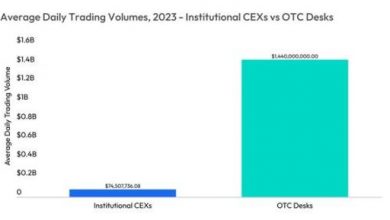Blockchain Technology in Supply Chain Management: Enhancing Transparency and Efficiency

Blockchain Technology in Supply Chain Management: Enhancing Transparency and Efficiency
Introduction
Blockchain technology has revolutionized various industries, and one area where it’s making a significant impact is supply chain management. With its ability to enhance transparency and efficiency, blockchain technology is transforming the way businesses handle their supply chains. In this blog post, we will explore how blockchain improves supply chain management and the benefits it provides.
Benefits of Blockchain in Supply Chain Management
Enhanced Transparency
Blockchain technology brings transparency to supply chain management by providing a decentralized and immutable ledger of transactions. This means that once the information is recorded on the blockchain, it cannot be altered or tampered with. This transparency eliminates the risk of fraudulent activities and promotes accountability throughout the supply chain.
Improved Traceability
One of the significant challenges in supply chain management is tracking products’ movement from the source to the end consumer. With blockchain, each transaction is recorded and can be traced back to its origin, providing a complete audit trail. This feature enables businesses to quickly identify any bottlenecks or issues in the supply chain and take appropriate actions.
Efficient Inventory Management
Blockchain technology simplifies and streamlines inventory management by automating the processes. Each product’s information, including its origin, quantity, and status, is recorded on the blockchain, making it easier to manage inventory levels and optimize stock replenishment. This efficiency ensures that businesses can meet customer demands promptly while minimizing inventory carrying costs.
Frequently Asked Questions (FAQs)
Q: How does blockchain technology ensure data security in the supply chain?
Blockchain technology ensures data security in the supply chain through decentralization and encryption. The decentralized nature of the blockchain means that data is stored across several computers, making it difficult for hackers to tamper with the information. Additionally, the use of encryption techniques further enhances data security, making it virtually impossible for unauthorized parties to access or manipulate the data.
Q: Are there any limitations to implementing blockchain in supply chain management?
While blockchain technology offers numerous benefits, there are some challenges to its implementation in supply chain management. These include the high initial costs, the need for technical expertise to develop and maintain the blockchain network, and the integration with existing systems. However, as technology evolves, these challenges are likely to diminish, and more businesses will embrace blockchain in their supply chain operations.
Q: Can blockchain technology be utilized in any industry’s supply chain?
Yes, the potential applications of blockchain technology in supply chain management are not limited to a specific industry. Whether it’s the food industry, manufacturing, pharmaceuticals, or logistics, blockchain can be utilized to enhance transparency, traceability, and efficiency. The flexibility and benefits offered by blockchain make it a viable solution for any industry that relies on a complex supply chain network.
Conclusion
Blockchain technology has opened doors to a new era of supply chain management. Its ability to enhance transparency, improve traceability, and streamline inventory management makes it a game-changer for businesses worldwide. Embracing blockchain technology in supply chain management will not only increase operational efficiency but also create a more secure and accountable business environment. As more businesses recognize the potential of blockchain, we can expect to see widespread adoption and even greater advancements in the field.



